By Anthony Browne, Europe correspondent of the Times.
Rising nationalism and fundamentalism around the world have meant that Christianity is going back to its roots as the religion of the persecuted.
There are now more than 300 million Christians who are either threatened with violence or legally discriminated against simply because of their faith - more than any other religion. Christians are no longer, as far as I am aware, thrown to the lions. But from China, North Korea and Malaysia, through India, Pakistan and Sri Lanka to Egypt, Saudi Arabia and Turkey, they are subjected to legalised discrimination, violence, imprisonment, relocation and forced conversion. Even in supposedly Christian Europe, Christianity has become the most mocked religion, its followers treated with public suspicion and derision.
I am no Christian, but rather a godless atheist whose soul doesn't want to be saved, thank you. I may not believe in the man with the white beard, but I do believe that all persecution is wrong. The trouble is that the trendies who normally champion human rights seem to think persecution is fine, so long as it's only against Christians. While Muslims openly help other Muslims, Christians helping Christians has become as taboo as jingoistic nationalism.
On the face of it, the idea of Christians facing serious persecution seems as far-fetched as a carpenter saving humanity. Christianity is the world's most followed religion, with two billion believers, and by far its most powerful. It is the most popular faith in six of the seven continents, and in both of the world's two biggest economies, the US and Europe. Seven of the G8 richest industrial nations are majority Christian, as are four out of five permanent members of the UN Security Council. The cheek-turners control the vast majority of the world's weapons of mass destruction.
When I bumped into George Bush in the breakfast room of the US embassy in Brussels, standing right behind me were two men in uniform carrying the little black 'nuclear football', containing the codes to enable the world's most powerful Christian to unleash the world's most powerful nuclear arsenal. Christians claiming persecution seem as credible as Bill Gates pleading poverty. But just as armies from Christian-majority countries control Iraq as it ethnically cleanses itself of its Christian community, so the power of Christian countries is of little help to the Christian persecuted where most Christians now live: the Third World.
Across the Islamic world, Christians are systematically discriminated against and persecuted. Saudi Arabia - the global fountain of religious bigotry - bans churches, public Christian worship, the Bible and the sale of Christmas cards, and stops non-Muslims from entering Mecca. Christians are regularly imprisoned and tortured on trumped-up charges of drinking, blaspheming or Bible-bashing, as some British citizens have found.
Furthermore, Saudi Arabia has announced that only Muslims can become citizens.
The Copts of Egypt make up half the Christians in the Middle East, the cradle of Christianity. They inhabited the land before the Islamic conquest, and still make up a fifth of the population. By law they are banned from being president of the Islamic Republic of Egypt or attending Al Azhar University, and severely restricted from joining the police and army. By practice they are banned from holding any high political or commercial position. Under the 19th-century Hamayouni decrees, Copts must get permission from the president to build or repair churches - but he usually refuses. Mosques face no such controls.
Government-controlled TV broadcasts anti-Copt propaganda, while giving no airtime to Copts. It is illegal for Muslims to convert to Christianity, but legal for Christians to convert to Islam. Christian girls - and even the wives of Christian priests - are abducted and forcibly converted to Islam. A report by Freedom House in Washington concludes: 'The cumulative effect of these threats creates an atmosphere of persecution and raises fears that during the 21st century the Copts may have a vastly diminished presence in their homelands.'
Fr Drew Christiansen, an adviser to the US Conference of Bishops, recently conducted a study which stated that 'all over the Middle East, Christians are under pressure. "The cradle of Christianity" is under enormous pressure from demographic decline, the growth of Islamic militancy, official and unofficial discrimination, the Iraq war, the Palestinian Intifada, failed peace policies and political manipulation.'
In the world's most economically successful Muslim nation, Malaysia, the world's only deliberate affirmative action programme for a majority population ensures that Muslims are given better access to jobs, housing and education. In the world's most populous Muslim nation, Indonesia, some 10,000 Christians have been killed in the last few years by Muslims trying to Islamify the Moluccas.
In the Islamic Republic of Pakistan, most of the five million Christians live as an underclass, doing work such as toilet-cleaning. Under the Hudood ordinances, a Muslim can testify against a non-Muslim in court, but a non-Muslim cannot testify against a Muslim. Blasphemy laws are abused to persecute Christians. In the last few years, dozens of Christians have been killed in bomb and gun attacks on churches and Christian schools.
In Nigeria, 12 states have introduced Sharia law, which affects Christians as much as Muslims. Christian girls are forced to wear the Islamic veil at school, and Christians are banned from drinking alcohol. Thousands of Christians have been killed in the last few years in the ensuing violence.
Although persecution of Christians is greatest in Muslim countries, it happens in countries of all religions and none. In Buddhist-majority Sri Lanka, religious tension led to 44 churches being attacked in a four month period, with 140 churches being forced to close because of intimidation. In India, the rise of Hindu nationalism has lead to persecution not just of Muslims but of Christians. There have been hundreds of attacks against the Christian community, which has been in India since ad 100. The government's affirmative action programme for untouchables guarantees jobs and loans for poor Hindus and Buddhists, but not for Christians.
Last year in China, which has about 70 million Christians, more than 100 'house churches' were closed down, and dozens of priests imprisoned. If you join the Communist party, you get special privileges, but you can only join if you are atheist. In North Korea, Christians are persecuted as anti-communist elements, and dissidents claim they are not just imprisoned but used in chemical warfare experiments.
Dr Patrick Sookhdeo, director of the Barnabas Trust, which helps persecuted Christians, blames rising global religious tension. 'More and more Christians are seen as the odd ones out - they are seen as transplants from the West, and not really trusted. It is getting very much worse.' Even in what was, before multiculturalism, known as Christendom, Christians are persecuted. I have spoken to dozens of former Muslims who have converted to Christianity in Britain, and who are shunned by their community, subjected to mob violence, forced out of town, threatened with death and even kidnapped. The Barnabas Trust knows of 3,000 such Christians facing persecution in Britain, but the police and government do nothing.
You get the gist. Dr Paul Marshall, senior fellow at the Centre for Religious Freedom in Washington, estimates that there are 200 million Christians who face violence because of their faith, and 350 million who face legally sanctioned discrimination in terms of access to jobs and housing. The World Evangelical Alliance wrote in a report to the UN Human Rights Commission last year that Christians are 'the largest single group in the world which is being denied human rights on the basis of their faith'.
Part of the problem is old-style racism against non-whites; part of it is new-style guilt. If all this were happening to the world's Sikhs or Muslims simply because of their faith, you can be sure it would lead the 10 O'Clock News and the front page of the Guardian on a regular basis. But the BBC, despite being mainly funded by Christians, is an organisation that promotes ridicule of the Bible, while banning criticism of the Koran. Dr Marshall
said: 'Christians are seen as Europeans and Americans, which means you get a lack of sympathy which you would not get if they were Tibetan Buddhists.'
Christians themselves are partly to blame for all this. Some get a masochistic kick out of being persecuted, believing it brings them closer to Jesus, crucified for His beliefs. Christianity uniquely defines itself by its persecution, and its forgiveness of its persecutors: the Christian symbol is the method of execution of its founder. Christianity was a persecuted religion for its first three centuries, until Emperor Constantine decided that worshipping Jesus was better for winning battles than worshipping the sun. In contrast, Mohammed was a soldier and ruler who led his people into victorious battle against their enemies. In the hundred years after the death of Mohammed, Islam conquered and converted most of North Africa and the Middle East in the most remarkable religious expansion in history.
To this day, while Muslims stick up for their co-religionists, Christians - beyond a few charities - have given up such forms of discrimination. Dr Sookhdeo said: 'The Muslims have an Ummah [the worldwide Muslim community] whereas Christians do not have Christendom. There is no Christian country that says, "We are Christian and we will help Christians."'
As a liberal democrat atheist, I believe all persecuted people should be helped equally, irrespective of their religion. But the guilt-ridden West is ignoring people because of their religion. If non-Christians like me can sense the nonsense, how does it make Christians feel? And how are they going to react? The Christophobes worried about rising Christian fundamentalism in Britain should understand that it is a reaction to our double standards. And as long as our double standards exist, Christian fundamentalism will grow.
 Give me cash Lord... take away financial uncertainty... if you give me lots i'll give most back to you i promise... you can trust me... i would be doing something for you but i need money first... don't i have enough faith for you to bless me?... if i pray the prayer of Jabez a bit more God will have to give me some... i promise to do great things that you will be really impressed with Lord but i need cash... now!
Give me cash Lord... take away financial uncertainty... if you give me lots i'll give most back to you i promise... you can trust me... i would be doing something for you but i need money first... don't i have enough faith for you to bless me?... if i pray the prayer of Jabez a bit more God will have to give me some... i promise to do great things that you will be really impressed with Lord but i need cash... now!
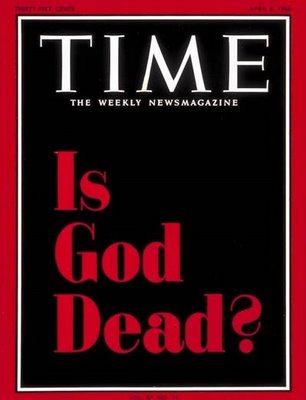

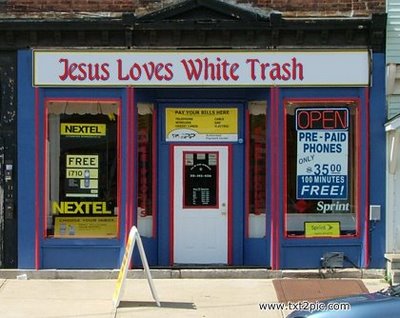
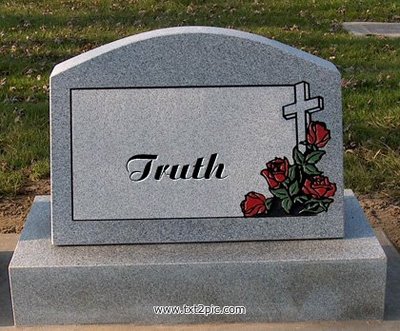
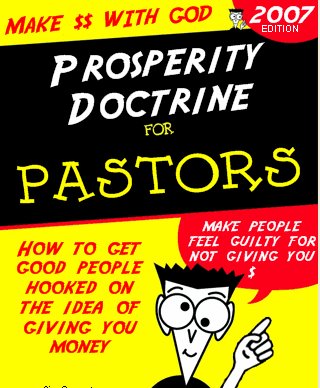
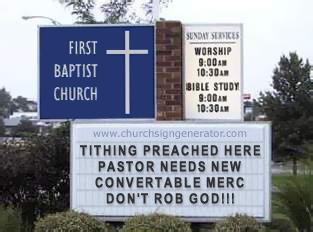


I am guessing you don't like Hillsong. Well instead of tearing a fellow Christian group or individual down why not focus your time & efforts on the LOST as you ascertain in other posts on this site. Let God be the judge, we are only calle dto the lost.